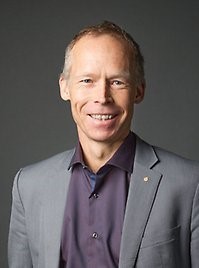|
Date: Thursday, 2 November 2017 |
RSVP here
|
The Centre for Environment & Sustainability (CES) and the Centre for the Understanding of Sustainable Prosperity (CUSP) are delighted to invite you to join us at the University of Surrey, Guildford, UK for the CES Annual Roland Clift Lecture which is presented this year by Professor Johan Rockström of the Stockholm Resilience Centre, Stockholm University. Professor Rockström's lecture is entitled 'World Development Within Planetary Boundaries'. |
|
ABSTRACT
The advent of the Anthropocene, the scientific recognition of the remarkably stable state of the Earth system during the Holocene Inter-glacial, the rising evidence of global risks of crossing Earth tipping points and the signs of a gradual decline in Earth resilience, constitute overwhelming evidence for the need of a deep mind-shift. Societies, business, Nations and the world at large, need to reconnect to the biosphere, and transform to world development within the safe operating space of a stable and resilient planet. This is nothing less than a global sustainability revolution, where prosperity and equity evolves within biophysical Earth system boundaries. Circular economic principles, novel system innovations and transformations, planetary stewardship and universal values of equity and shared responsibility, thereby naturally form important cornerstones in Humanity’s future on Earth.
|
REGISTRATION |
ABOUT
Johan Rockström is the director of the Stockholm Resilience Centre and a professor of environmental science at Stockholm University. He helped lead the internationally renowned team of scientists that presented the planetary boundaries framework, first published in 2009, with an update in 2015. The nine planetary boundaries presented in the framework are argued to be fundamental in maintaining a “safe operating space for humanity.” Rockström's work is generally considered to provide a new basis for exploring the science and practice of sustainability. The planetary boundaries framework has been used to help guide governments, international organisations, NGOs, and companies considering sustainable development.
